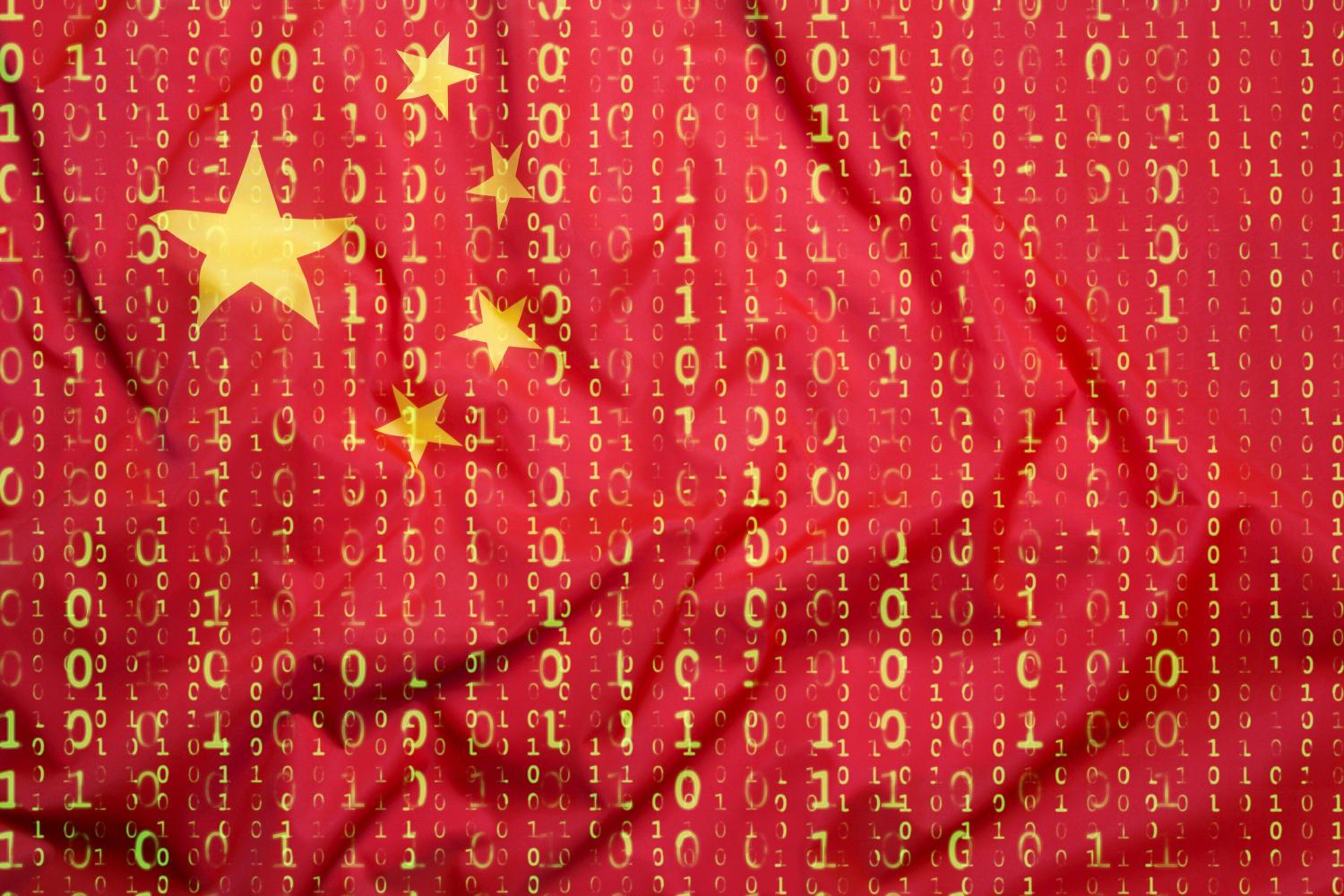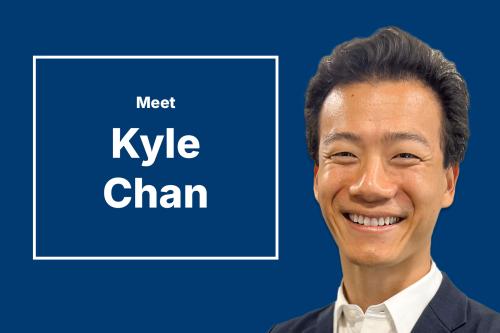Read translated versions of the report in Arabic, Brazilian Portuguese, French, German, Hindi, Indonesian, Korean, Serbo Croatian, Spanish, Turkish, and Vietnamese.
Executive summary
External Chinese government and commercial messaging on information technology (IT) speaks in one voice. Domestically, one hears a different, second voice. The former stresses free markets, openness, collaboration, and interdependence, themes that suggest Huawei and other Chinese companies ought to be treated like other global private sector actors and welcomed into foreign networks. Meanwhile, domestic Chinese government, commercial, and academic discourse emphasizes the limits of free markets and the dangers of reliance on foreign technologies — and, accordingly, the need for industrial policy and government control to protect technologies, companies, and networks. Domestic Chinese discourse also indicates that commercial communication networks, including telecommunications systems, might be used to project power and influence offensively; that international technical standards offer a means with which to cement such power and influence; and — above all — that IT architectures are a domain of zero-sum competition.
That external Chinese government and corporate messaging might be disingenuous is by no means a novel conclusion. However, the core differences between that messaging and Chinese internal discussion on IT remain largely undocumented — despite China’s increasing development of and influence over international IT infrastructures, technologies, and norms. This report seeks to fill that gap, documenting the tension between external and internal Chinese discussions on telecommunications, as well as IT more broadly. The report also parses internal discourse for insight into Beijing’s intent, ambitions, and strategy. This report should raise questions about China’s government and commercial messaging, as well as what that messaging may obscure.
This report is motivated by China’s growing influence in telecommunications and the growing controversy accompanying that influence. However, China’s telecommunications resources, ambitions, and strategic framing are intertwined with those around IT more broadly. For that reason, this report reviews Chinese government, commercial, and academic discussion of both IT generally and telecommunications specifically. This report also contextualizes its analysis in terms of Beijing’s program to become a “cyber great power,” also translated as “network great power,” the blueprint for China’ ambitions to leapfrog legacy industrial leaders and define the architecture of the digital revolution.
A new technological landscape is taking shape. China works to define that landscape. More than ever, it is imperative that China’s ambitions be documented.
The report advances several primary findings:
1
While China repeatedly discusses its “cyber great power” ambitions internally, those are rarely acknowledged in outward-facing messaging. The phrase “cyber great power” is a key concept guiding Chinese strategy in telecommunications as well as IT more broadly. It appears in the title of almost every major speech by President Xi Jinping on China’s telecommunications and network strategy aimed at a domestic audience since 2014. But the phrase is rarely found in messaging aimed at external foreign audiences, appearing only once in six years of remarks by Foreign Ministry spokespersons. This suggests that Beijing intentionally dilutes discussions of its ambitions in order not to alarm foreign audiences.
2
Even as the Chinese government encourages foreign audiences to purchase Huawei products, its leaders warn domestic audiences of the dangers that stem from reliance on foreign technology. Years before the trade war and the Trump administration’s restrictions on Huawei, Xi argued that “the control of core technology by others is our biggest hidden danger” and that allowing foreigners to control core technology “is like building a house on someone else’s foundation.”1 He declared that “China must have its own technology, and it must have strong technology.”2
3
The Chinese government encourages foreign audiences skeptical of Huawei to adhere to market principles. At the same time, the government cautions domestic audiences that IT network development requires industrial policy and cannot be entrusted to market forces. Xi has declared, explicitly, that “market exchange cannot bring us core technologies, and money cannot buy core technologies.”3
4
Beijing calls foreign security concerns over Huawei “lame excuse[s]” and pure “politics.”4 At the same time, China expresses similar concerns domestically over the incorporation of foreign technology into its networks. Security is paramount for Xi, who has repeatedly declared that “without cyber security, there will be no national security.”5 Accordingly, he argues for adoption only of foreign technology that is “controllable” — while leaders at the Ministry of Industry and Information Technology (MIIT) stress that foreign technology networks tend not to be “controllable.”6 China must therefore build its own networks that are both “independent and controllable.”7
5
Commercial and academic Chinese sources suggest that the international community’s security concerns over Chinese telecommunications might not be misplaced, and that Beijing might see telecommunications and other commercial networks as means to project offensive power globally. Xi presents IT as a key part of China’s military-civil fusion strategy: In 2018, he said that “military-civil fusion in cybersecurity and informatization is the key field and frontier field for military-civil fusion.”8 Downstream, Qin An, director of the China Institute of Cyberspace Strategy, argued in 2016 that “due to the highly monopolistic nature of information technology systems, it is unlikely that there will be two different systems for military and civilian use … it is particularly necessary [for China] to integrate military and civilian resources through a military-civil fusion system.”9
6
When discussing standard-setting with foreign audiences, the Chinese government stresses win-win collaboration. Yet domestic discussion emphasizes the competitive value of standards for establishing technological dominance and, correspondingly, the need to build “discourse power” in global IT development. Xi argues that in cyber security and telecommunications, the “game of great powers is not only a game of technology but also a game of ideas and discourse power,” a reference to internet governance and standards.10 Other sources build on Xi’s language, noting that China works to set standards in 5G — and IT more broadly — in order to overtake the West, that doing so provides economic and military advantages. In short, those “who set the standards gain the world.”11
العربية
وبينما تطالب الحكومة الصينية والرسائل التجارية الموجهة إلى الجماهير الأجنبية في مجال الاتصالات بالالتزام بمبادئ السوق، فإن الخطاب الصيني الداخلي يحذر من مخاطر الاعتماد على التقنية الأجنبية.
تنزيل التقرير الكامل (بصيغة PDF) »
تنزيل ورقة العمل (بصيغة PDF) »
Português do Brasil
Embora o governo chinês e as mensagens comerciais sobre telecomunicações voltadas para públicos estrangeiros exijam a adesão aos princípios do mercado, o discurso interno chinês alerta sobre os riscos da confiança na tecnologia estrangeira.
Fazer download do relatório completo (PDF) »
Fazer download do folheto (PDF) »
Français
Alors que les discours gouvernementaux et commerciaux de la Chine sur les télécommunications destinés à des publics étrangers exigent le respect des principes du marché, le discours chinois interne met en garde contre les risques de dépendance vis-à-vis de la technologie étrangère.
Télécharger le rapport complet (PDF) »
Télécharger le document (PDF) »
Deutsch
Während die chinesische Regierung und die Werbebotschaften zur Telekommunikation für ausländische Zielgruppen die Einhaltung der Marktprinzipien fordern, warnen interne chinesische Diskurse vor den Risiken der Abhängigkeit von ausländischer Technologie.
Vollständigen Bericht herunterladen (PDF) »
हिन्दी
जहां चीनी सरकार और विदेशी दर्शकों पर लक्षित दूरसंचार पर वाणिज्यिक संदेश सेवा, बाजार सिद्धांतों के पालन की मांग करती है, वहीं आंतरिक चीनी बातचीत विदेशी प्रौद्योगिकी पर निर्भरता के जोखिमों के बारे में चेतावनी देता है.
पूर्ण रिपोर्ट डाउनलोड करें (PDF) »
Bahasa Indonesia
Saat pesan yang disampaikan oleh pemerintah dan kalangan bisnis Tiongkok kepada khalayak luar negeri terkait bidang telekomunikasi menuntut ketaatan terhadap prinsip-prinsip pasar, wacana internal Tiongkok memperingatkan akan risiko dari ketergantungan pada teknologi asing.
한국어
외국인을 대상으로 한 중국 정부 및 민간의 통신 관련 메시지는 시장 원리 준수를 요구하지만, 중국 내부 담론은 외국 기술에 대한 의존의 위험을 경고합니다.
Srpsko-hrvatski
Iako kineska vlada i komercijalne poruke o telekomunikacijama usmjerene stranoj javnosti zahtijevaju pridržavanje tržišnih načela, interni kineski diskurs upozorava na rizike oslanjanja na stranu tehnologiju.
Preuzmite cijelo izvješće (PDF) »
Español
Mientras que el Gobierno chino y los mensajes comerciales sobre telecomunicaciones dirigidos a audiencias extranjeras exigen el cumplimiento de los principios del mercado, el discurso interno chino advierte los riesgos de la dependencia de la tecnología extranjera.
Descargar el informe completo (PDF) »
Türkçe
Ülke dışındaki kitlelere yönelik telekomünikasyonla ilgili ticari mesajlarda ve Çin hükümeti tarafından piyasa ilkelerine uyulması talep ediliyor olsa da ülke içi Çin söyleminde dış teknolojilere güvenmenin riskleri konusunda uyarıda bulunuyor.
Tiếng Việt
Trong khi chính phủ Trung Quốc cùng thông điệp thương mại về các hoạt động viễn thông nhắm đến đối tượng nước ngoài đòi hỏi sự tuân thủ nguyên tắc thị trường thì các cuộc diễn ngôn trong nội bộ Trung Quốc lại cảnh báo về nguy cơ dựa vào công nghệ nước ngoài.
Tải xuống báo cáo đầy đủ (PDF) »
This report was completed before Rush Doshi’s government service, involves only open sources, and does not necessarily reflect the official policy or position of any agency of the U.S. government.
-
Acknowledgements and disclosures
The authors wish to thank former interns Isabella Lu, Gaoqi Zhang, and Zijin Zhou for their research assistance on this project, Anna Newby and Ted Reinert for editing this paper, and Chris Krupinski for providing layout. Brookings is grateful to the U.S. Department of State and the Institute for War and Peace Reporting for funding this research.
-
Footnotes
- 习近平 [Xi Jinping], “习近平在网信工作座谈会上的讲话全文发表” [The Full Text of Xi Jinping’s Speech at the Forum on Cybersecurity and Informatization Work], (speech, Beijing, April 25, 2016), http://www.xinhuanet.com//politics/2016-04/25/c_1118731175.htm.
- 习近平 [Xi Jinping], “习近平:把我国从网络大国建设成为网络强国-高层动态-新华网” [Xi Jinping: Build China from a Major Cyber Country to a Cyber Great Power], Xinhua, February 27, 2014, http://www.xinhuanet.com//politics/2014-02/27/c_119538788.htm.
- 习近平 [Xi Jinping], “习近平在网信工作座谈会上的讲话全文发表” [The Full Text of Xi Jinping’s Speech at the Forum on Cybersecurity and Informatization Work].
- Hua Chunying, “Foreign Ministry Spokesperson Hua Chunying’s Regular Press Conference on July 15, 2020,” (speech, Beijing, July 15, 2020), https://www.fmprc.gov.cn/mfa_eng/xwfw_665399/s2510_665401/t1797967.shtml; Hua Chunying, “Foreign Ministry Spokesperson Hua Chunying’s Regular Press Conference on December 11, 2020,” (speech, Beijing, December 11, 2020), https://www.fmprc.gov.cn/mfa_eng/xwfw_665399/s2510_665401/2511_665403/t1839583.shtml.
- “中央网络安全和信息化领导小组第一次会议召开” [The First Meeting of the Central Network Security and Informatization Leading Group Was Held], 中央政府门户网站 [Central Government Portal], February 27, 2014, http://www.gov.cn/ldhd/2014-02/27/content_2625036.htm.
- “习近平称努力让关键核心技术自主可控 促产业迈向全球价值链中高端” [Xi Jinping Said That Efforts to Make Key Core Technologies Independent and Controllable to Promote the Industry to the High-End Global Value Chain], Reuters, May 28, 2018, https://cn.reuters.com/article/china-xi-jinping-tech-value-chain-0528-idCNKCS1IT0XT; 陈肇雄 [Chen Zhaoxiong], “推进工业和信息化高质量发展” [Promote the High-Quality Development of Industry and Informatization], 网信军民融合 [Military-Civil Fusion on Cyberspace], July 9, 2019, CNKI: F424;F49.
- “习近平称努力让关键核心技术自主可控 促产业迈向全球价值链中高端” [Xi Jinping Said That Efforts to Make Key Core Technologies Independent and Controllable to Promote the Industry to the High-End Global Value Chain], Reuters.
- 习近平 [Xi Jinping], “习近平:自主创新推进网络强国建设” [Xi Jinping: Independent Innovation Promotes the Building of a Network Power], 新华 [Xinhua], April 21, 2018, http://www.xinhuanet.com/politics/2018-04/21/c_1122719810.htm.
- 秦安 [Qin An], “网络强国的意识认识共识” [Awareness, Understanding, and Consensus of a Network Power], 中国信息技术安全评估中心 [China Information Security] 9 (2016), CNKI: TP393.08.
- 习近平 [Xi Jinping], “习近平在网信工作座谈会上的讲话全文发表” [The Full Text of Xi Jinping’s Speech at the Forum on Cybersecurity and Informatization Work].
- 郭占恒 [Guo Zhanheng], “习近平标准化思想与浙江实践” [Xi Jinping’s Standardization Thought and Zhejiang Practice], 浙江日报 [Zhejiang Daily], September 25, 2015, CNKI: F203;F092.7. Both quoted phrases are common in Chinese corporate and policy discussions of standards.
The Brookings Institution is committed to quality, independence, and impact.
We are supported by a diverse array of funders. In line with our values and policies, each Brookings publication represents the sole views of its author(s).








